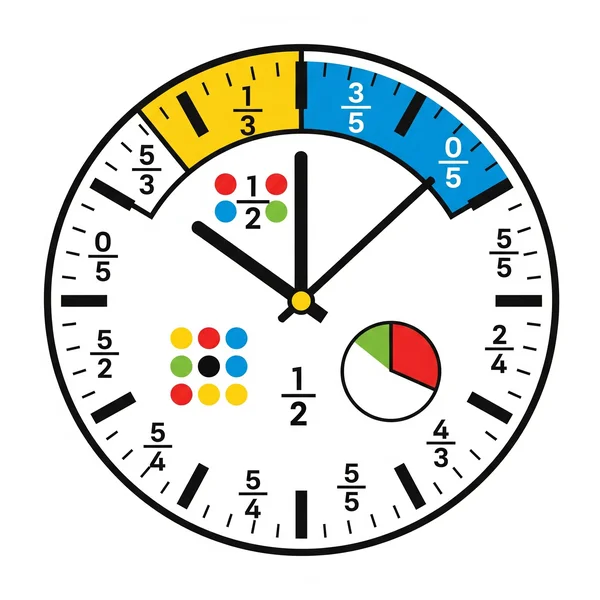
Can analog clocks support dyscalculia? For individuals with learning differences like dyscalculia, the analog clock can be a surprisingly helpful tool.
How the Visual-Spatial Nature of Analog Clocks Can Help with Dyscalculia
Dyscalculia often involves difficulties with number sense and spatial reasoning. The visual and spatial nature of an analog clock can provide a more accessible entry point to time concepts than purely numerical (digital) representations. Using an analog clock for dyscalculia support can leverage visual strengths.
Using Analog Clocks as a Concrete Tool for Abstract Time and Number Concepts
For those who struggle with abstract numerical ideas, an analog clock offers a concrete learning aid. The movement of the hands provides a physical representation of passing time and numerical quantities (like 5 minutes, 15 minutes), which can be easier to grasp. Understanding how different tools like analog clocks can support cognitive development is crucial, especially for individuals with learning differences.
See the full article HERE
- Master Arithmetic with Tools at Home https://PracticalMathHelp.com
- Dyscalculia news and podcasts https://DyscalculiaHeadlines.com
- Dyscalculia for Dyslexia tutors transition training https://dys4dys.org
- Dyscalculia Services https://DyscalculiaServices.com
- Dyscalculia Awareness Training https://DyscalculiaAware.org
- Math Assessment Reasoning and Strategy https://MathStrategy.org
- Help you child with math homework https://MomsTeachMath.com
- Math and Dyscalculia Screening test https://DyscalculiaTesting.com
- Dyscalculia Screener https://DyscalculiaScreener.org
- Adult Dyscalculia https://AdultDyscalculia.org
- Become a Dyscalculia Tutor https://DyscalculiaTutorTraining.org
- Ask a question at https://Dyscalculia.ai
